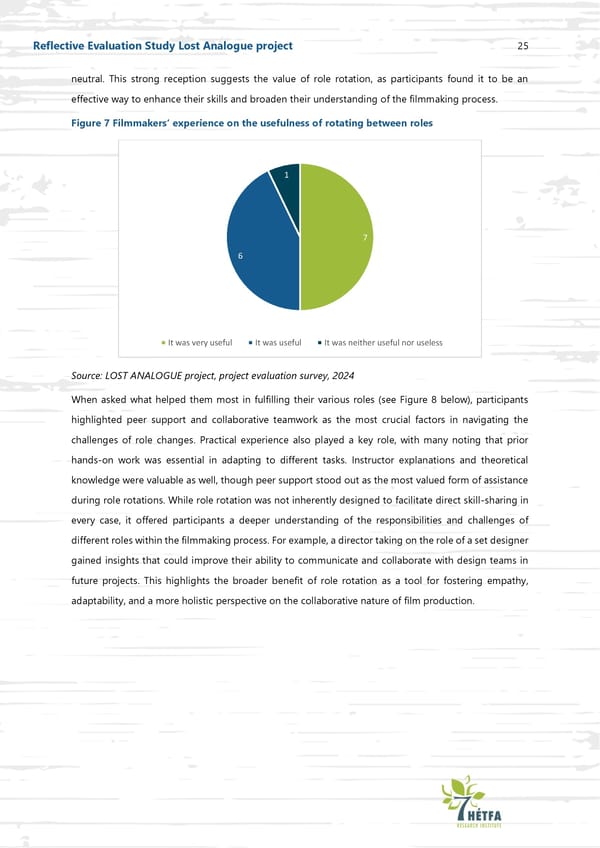25 Reflective Evaluation Study Lost Analogue project neutral. This strong reception suggests the value of role rotation, as participants found it to be an effective way to enhance their skills and broaden their understanding of the filmmaking process. Figure 7 Filmmakers experience on the usefulness of rotating between roles Source: LOST ANALOGUE project , project evaluation survey, 2024 When asked what helped them most in fulfilling their various roles (see Figure 8 below), participants highlighted peer support and collaborative teamwork as the most crucial factors in navigating the challenges of role changes. Practical experience also pl ayed a key role, with many noting that prior hands - on work was essential in adapting to different tasks. Instructor explanations and theoretical knowledge were valuable as well, though peer support stood out as the most valued form of assistance during rol e rotations. While role rotation was not inherently designed to facilitate direct skill - sharing in every case, it offered participants a deeper understanding of the responsibilities and challenges of different roles within the filmmaking process. For examp le, a director taking on the role of a set designer gained insights that could improve their ability to communicate and collaborate with design teams in future projects. This highlights the broader benefit of role rotation as a tool for fostering empathy, adaptability, and a more holistic perspective on the collaborative nature of film production. 7 6 1 It was very useful It was useful It was neither useful nor useless
 Celluloid Connections: Cultivating creative skills through analogue film and musical collaboration Page 25 Page 27
Celluloid Connections: Cultivating creative skills through analogue film and musical collaboration Page 25 Page 27